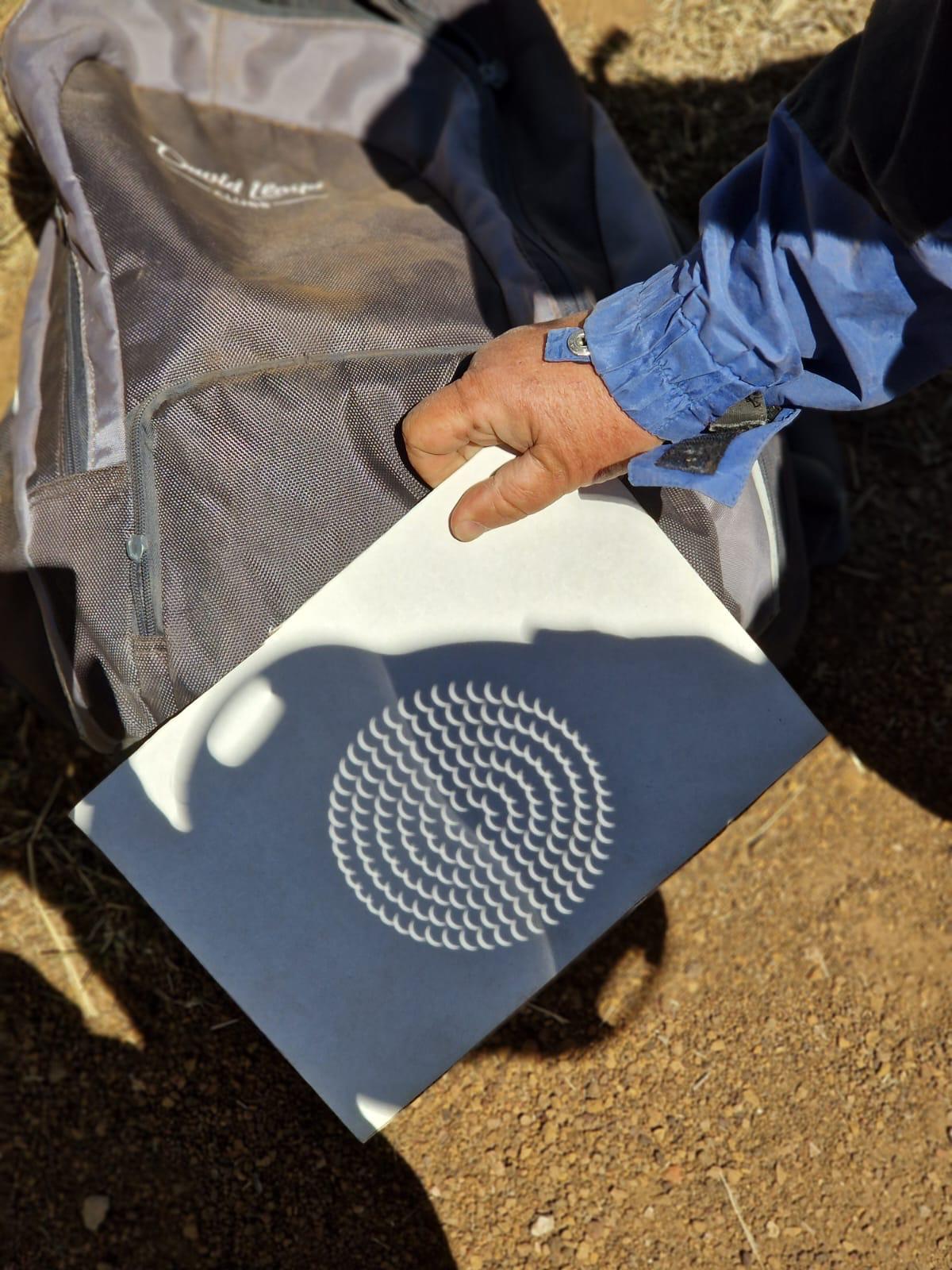In the last minutes before totality the world itself becomes a show. Through a
kitchen colander
 or under a leafy tree you’ll see hundreds of tiny crescent Suns dancing on the ground: the camera-obscura effect. On a white towel you might even catch shadow bands, shimmering stripes caused by atmospheric turbulence as the Sun shrinks to a point.
or under a leafy tree you’ll see hundreds of tiny crescent Suns dancing on the ground: the camera-obscura effect. On a white towel you might even catch shadow bands, shimmering stripes caused by atmospheric turbulence as the Sun shrinks to a point.
As soon as the Sun is totally covered, the sky turns into a night-like panorama.
Venus shines brightly to the upper left of the Sun; near the horizon
Jupiter and Mercury
appear
 .
With binoculars you may glimpse prominences and solar flares fiery fountains of gas at the edge of the eclipsed disc.
.
With binoculars you may glimpse prominences and solar flares fiery fountains of gas at the edge of the eclipsed disc.
Don’t forget to look around: the 360-degree horizon glowing like sunset, the sudden chill in the air, and the hush over the crowd. These sensory details make a total eclipse a truly multi-dimensional experience.
More about eclipses:
EclipseWise.com – Fred Espenak: check precise contact times and star/planet visibility data.
WhenIsTheNextEclipse.com – Jamie Carter: articles on rare eclipse phenomena like shadow bands and prominences.
Eclipses visibles en España – Instituto Geográfico Nacional (IGN): official Spanish government site with interactive tools for local timings and phenomena visible in Spain.
NationalEclipse.com: guides on safe viewing and what to expect during each phase.